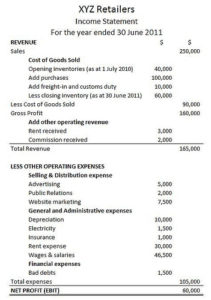Revenue Recognition Principle Risk And Reward

Ifrs use accrual principle in revenue recognition.
Revenue recognition principle risk and reward. One of the key changes introduced by ifrs 15 revenue from contracts with customers is that revenue recognition is now based on the transfer of control over goods or services to a customer rather than just the transfer of risks and rewards. The revenue recognition principle is a cornerstone of accrual accounting together with the matching principle. Revenue recognition is an accounting principle that outlines the specific conditions under which revenue sales revenue sales revenue is the income received by a company from its sales of goods or the provision of services. If the financial statements of an entity are prepared to base on ifrs the revenue is recognized at the time risks and rewards of the selling transactions are transfer from the seller to the buyer.
All of the above criteria should be met to recognize revenue. The revenue recognition principle or just revenue principle tells businesses when they should record their earned revenue. There is a transfer of risk and rewards from the seller to the buyer. Ifrs 15 replaces the old concept of the transfer of risk and reward with the concept of transfer of control.
In accounting the terms sales and revenue can be and often are used interchangeably to mean the same thing. According to the principle revenues are recognized if they are realized or realizable the seller has collected payment or has reasonable. The answer to this question is potentially yes. The blueprint breaks down the rrp.
If the reporting entity retains only an insignificant risk of ownership the transaction is considered a sale and revenue is recognized. In this article we discuss revenue recognition under the accrual basis of ifrs. Another important condition for recognition of revenue from the sale of goods is the existence of the probability that the economic benefits will flow to the entity. For many companies this is resulting in changes to the pattern of revenue recognition from over time to a.
Revenue recognition principle states that a firm should record revenue in its books of accounts when it is earned and is realized or realizable and not when the cash is collected.